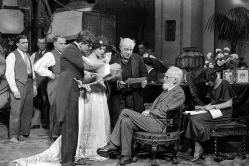Antipyretics for children are prescribed by a pediatrician. But there are emergency situations for fever when the child needs to be given medicine immediately. Then the parents take responsibility and use antipyretic drugs. What is allowed to give to infants? How can you bring down the temperature in older children? What medicines are the safest?
Good afternoon, father. I am married for the second time, my husband took me with a small child, whose father left us at birth. I have been churched since 2001, that is, I consider my second marriage to be begged, as I prayed for a long time and asked for my father's son. The husband is wonderful as a husband and father, who does not drink, but is not churched and has little faith. And I am depressed by the fact that he does not attach importance to the fact that living in an unmarried marriage is a sin. I can't force him. I prayed for him to be enlightened about this. Prayed to many saints. What should I do? Maybe everything has its time? And the Lord himself will lead him to this? I live in sin. But divorce, as I understand it, is not an option. Divorce because the husband does not want to get married is absurd, and the Lord will condemn me for this. Father, give me advice on how to live, how to continue to visit the temple, how to stand before God after death for this sin, how to go to confession being unmarried? Thanks in advance. Evgenia.
Archpriest Alexander Ilyashenko answers:
Hello Evgeniya!
You worry in vain: a registered marriage is a legal marriage, and not a sin in the eyes of God and the Church. The Lord has given you a good husband, and you can be his guide to Christ. But your preaching should be, first of all, your love and care for your husband, your attention to him. Try to show your husband the beauty of Christianity, and, of course, do not leave prayers for him. For some specific situations, it is better to consult with the priest in the temple personally. God bless you in your work! Cheer up and thank the Lord for giving you a good husband.
Sincerely, Archpriest Alexander Ilyashenko.
Read also
Olga, Tver
What if my fiancé doesn't want to get married?
Good health! My fiancé and I will soon get married, I am an Old Believer, and he is a New Believer, but he never went to church and has no idea how things are done there, although he wears a cross. He does not forbid me to go to church and does not laugh at it. But I want us to get married, but he doesn’t need it, because for a start he should just go to church, and then perform chrismation. He simply does not have time for this, as he says. His head is mainly occupied with everyday problems, which is called an earthly person: on weekends he leaves for the village and either hunts or works there, he is not up to church there. Later I want to baptize our children, but he thinks that I am doing stupid things and it’s just not clear what I’m chasing. You can't drive anyone to church by force, especially him. If you go to church, then only with sincere faith, and I don’t want to force him to. In his heart he believes, but he has no time to go to churches. How can we be in such a situation? Leave him alone, if he doesn't want to, or continue to try to interest him in this?
Good day! You say that you will soon get married, and maybe, when I write these lines, you have already become husband and wife. Depending on your situation, the answer will be different.
If you have not had time to “legalize” yet, then you should seriously think about whether it is necessary to marry such a person at all. Why am I asking this question so harshly? Because you have completely different views on the most important issue of life, you have different vectors of life. What is valuable and dear to you, he calls "nonsense". How do you think about living together? After all, these problems will only grow, especially with the appearance of children. Starting with the question of whether to have children at all, and ending with the questions and goals of their upbringing. Somewhere I met such statistics: if only a mother is a believer in a family, then the probability that the children will grow up as believers is 30%, and if the father, then all 70.
Now falling in love prevents you from correctly assessing the situation. But the fact of doubt is already evident, otherwise you would not ask the priest about it. The one who thinks to "re-educate" his future spouse is deeply mistaken and bitterly disappointed. I repeat the words of the classic that those who love each other are not those who look into each other's eyes, but those who look in the same direction. So measure seven times and cut once.
Well, if you are already married or things have gone so far that it is too late to change something, then my advice will be this. Continue to go to church even without him, sincerely pray to God at home, keep fasting. It is especially important at the beginning of your life together to show your husband that these are your foundations, which you will not change under any circumstances. Pray fervently for your husband, so that the Lord will touch his heart and awaken faith in him so that one day he will be able to say with Blessed Augustine: “I loved You too late, Beauty, so ancient and so young, I loved You too late! Here You were in me, and I was in the outside and there I was looking for You, into this beautiful world, created by You, I broke into, ugly! You were with me, I was not with you. The world kept me away from You, which would not exist if it were not in You. You called, shouted and broke through my deafness; You sparkled, shone and drove away my blindness; You spilled your fragrance, I breathed in and suffocate without You. I have tasted You and I am hungry and thirsty; You touched me, and I caught fire about Your peace (“Confession” Book 10, ch. 27).
But this can take years, and you will need a lot of patience along the way. Remember, " It is impossible for men, but for God all things are possible.» (Matthew 19:26)
Without reading the responses of the respondents, I quote:The common faith of spouses who are members of the body of Christ is the most important condition for a truly Christian and church marriage. Only a family that is united in faith can become a "domestic church" (Rom. 16:5; Philm. 1:2), in which the husband and wife, together with their children, grow in spiritual perfection and the knowledge of God. Lack of unanimity poses a serious threat to the integrity of the marital union. That is why the Church considers it her duty to urge believers to marry "only in the Lord" (1 Cor. 7:39), that is, with those who share their Christian convictions.
The definition of the Holy Synod mentioned above also speaks of the respect of the Church "for such a marriage in which only one of the parties belongs to the Orthodox faith, in accordance with the words of the holy Apostle Paul: "An unbelieving husband is sanctified by a believing wife, and an unbelieving wife is sanctified by a believing husband" (1 Cor. 7. 14)". The Fathers of the Council of Trullo also referred to this text of Holy Scripture, recognizing as valid the union between persons who, “while still in unbelief and not being counted among the flock of Orthodox, were united among themselves by legal marriage,” if later one of the spouses converted to the faith (rule 72 ). However, in the same rule and other canonical definitions (IV Vs. Sob. 14, Laod. 10, 31), as well as in the works of ancient Christian writers and Church Fathers (Tertullian, St. Cyprian of Carthage, Blessed Theodoret and Blessed Augustine), it is forbidden marriages between Orthodox and followers of other religious traditions.
In accordance with the ancient canonical prescriptions, the Church today does not consecrate marriages between Orthodox and non-Christians, while simultaneously recognizing them as legal and not considering those who stay in them as being in fornication. Based on considerations of pastoral economy, the Russian Orthodox Church, both in the past and today, finds it possible for Orthodox Christians to marry Catholics, members of the Ancient Eastern Churches and Protestants professing faith in the Triune God, subject to the blessing of marriage in the Orthodox Church and the upbringing of children in the Orthodox Church. faith. The same practice has been followed in most Orthodox Churches over the past centuries.
The Church insists on the lifelong fidelity of spouses and the indissolubility of Orthodox marriage, based on the words of the Lord Jesus Christ: “What God has joined together, let no man separate... a divorced woman commits adultery" (Matthew 19:6:9). Divorce is condemned by the Church as a sin, because it brings severe mental suffering to both spouses (at least one of them), and especially children.
In 1918, the Local Council of the Russian Orthodox Church, in its “Determination on the Reasons for the Termination of a Marriage Union Sanctified by the Church,” recognized as such, in addition to adultery and the entry of one of the parties into a new marriage, also the falling away of a spouse from Orthodoxy, unnatural vices, inability to marital cohabitation that occurred before marriage or was the result of intentional self-mutilation, illness with leprosy or syphilis, a long absence without a trace, condemnation to a punishment combined with the deprivation of all rights of the state, encroachment on the life or health of a spouse or children, drugging, pandering, benefiting from the indecency of a spouse , incurable severe mental illness and malicious abandonment of one spouse by another. Currently, this list of grounds for dissolution of marriage is supplemented by such reasons as AIDS, medically certified chronic alcoholism or drug addiction, abortion by the wife with her husband's disagreement.
In order to spiritually educate the spouses and help strengthen marital ties, priests are called upon to explain in detail to the bride and groom the idea of the indissolubility of the church marriage union in the conversation preceding the celebration of the Sacrament of Marriage, emphasizing that divorce as an extreme measure can only take place if the spouses acts that are defined by the Church as grounds for divorce. Consent to the dissolution of a church marriage cannot be given for the sake of whimsy or to "confirm" a civil divorce. However, if the breakup of a marriage is a fait accompli - especially when the spouses live apart - and the restoration of the family is not recognized as possible, a church divorce is also allowed by pastoral indulgence. The Church does not encourage second marriage. However, after a legal ecclesiastical divorce, according to canon law, a second marriage is permitted to the innocent spouse. Persons whose first marriage broke up and was annulled through their fault are allowed to enter into a second marriage only on condition of repentance and fulfillment of the penance imposed in accordance with canonical rules. In those exceptional cases where a third marriage is allowed, the period of penance, in accordance with the rules of St. Basil the Great, is extended.



